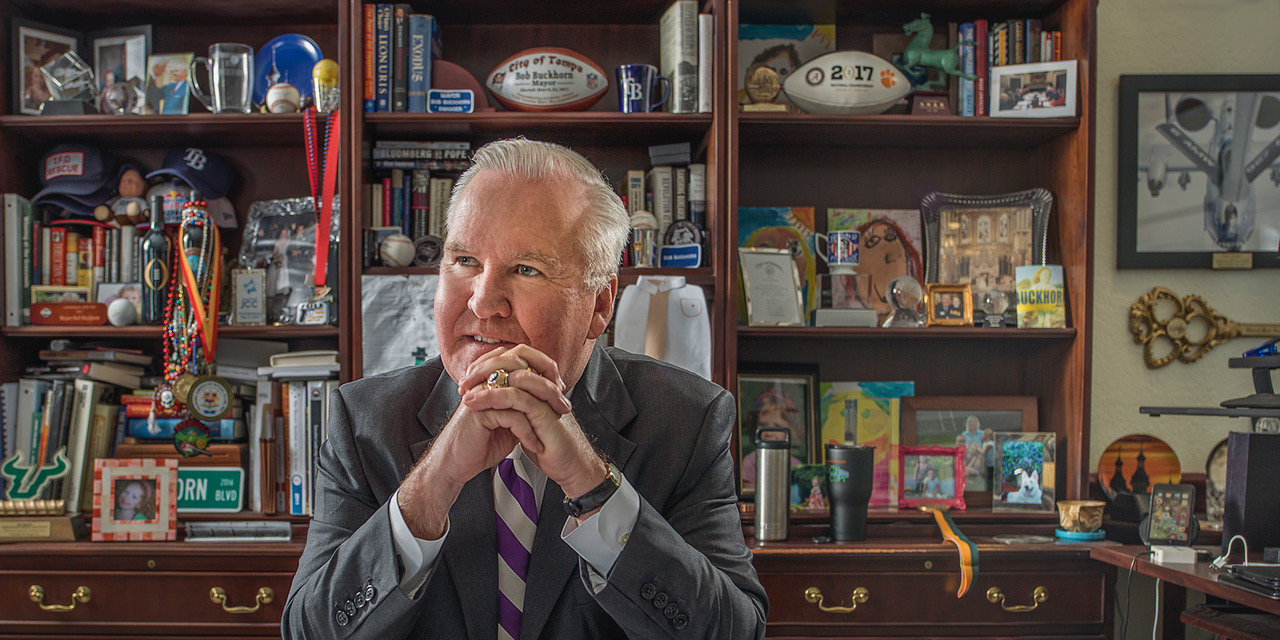Q: Much of the focus of your time as mayor has centered around downtown. What are some other developments around Tampa that you’re proud of?
A: What we have tried to do here is make sure that everybody benefits, even though downtown gets a lot of the attention because it’s sexy. It’s big. People pay attention to it; it’s transformative. It’s like the hub, and the spokes go to the neighborhoods. We’ve spent just as much time working on making sure those neighborhoods are strong and vibrant. It starts out with making sure they’re safe. We have focused on quality of life issues, particularly those associated with children. We’ve probably built more parks, in terms of total acreage, than any other administration ever.
We’ve really ramped up our parks and recreation system. For example, we have a program that just won a major award from the Conference of Mayors called “Stay and Play.” We were having a rash of gun violence out in some of the tougher neighborhoods. What we did was identify those neighborhoods, identify the parks and recreation locations and facilities in the neighborhood, and open them up seven days a week til midnight. I needed to get those kids off the street, and I need-ed to get them into an environment where they were safe, surrounded by adults that cared about them — not being seduced by the gangs and the guns and the violence. We’ve had over 100,000 visits by kids to those recreational facilities. Whether it was helping to build new housing in some of the tougher neighborhoods or the parks and recreation or the 90 miles of new bike lanes that we’ve added, it’s all been focused on quality of life and trying to make sure that, yes, downtown will get all the attention, but we’re paying equal attention to some of the neighborhoods that are not as well known.
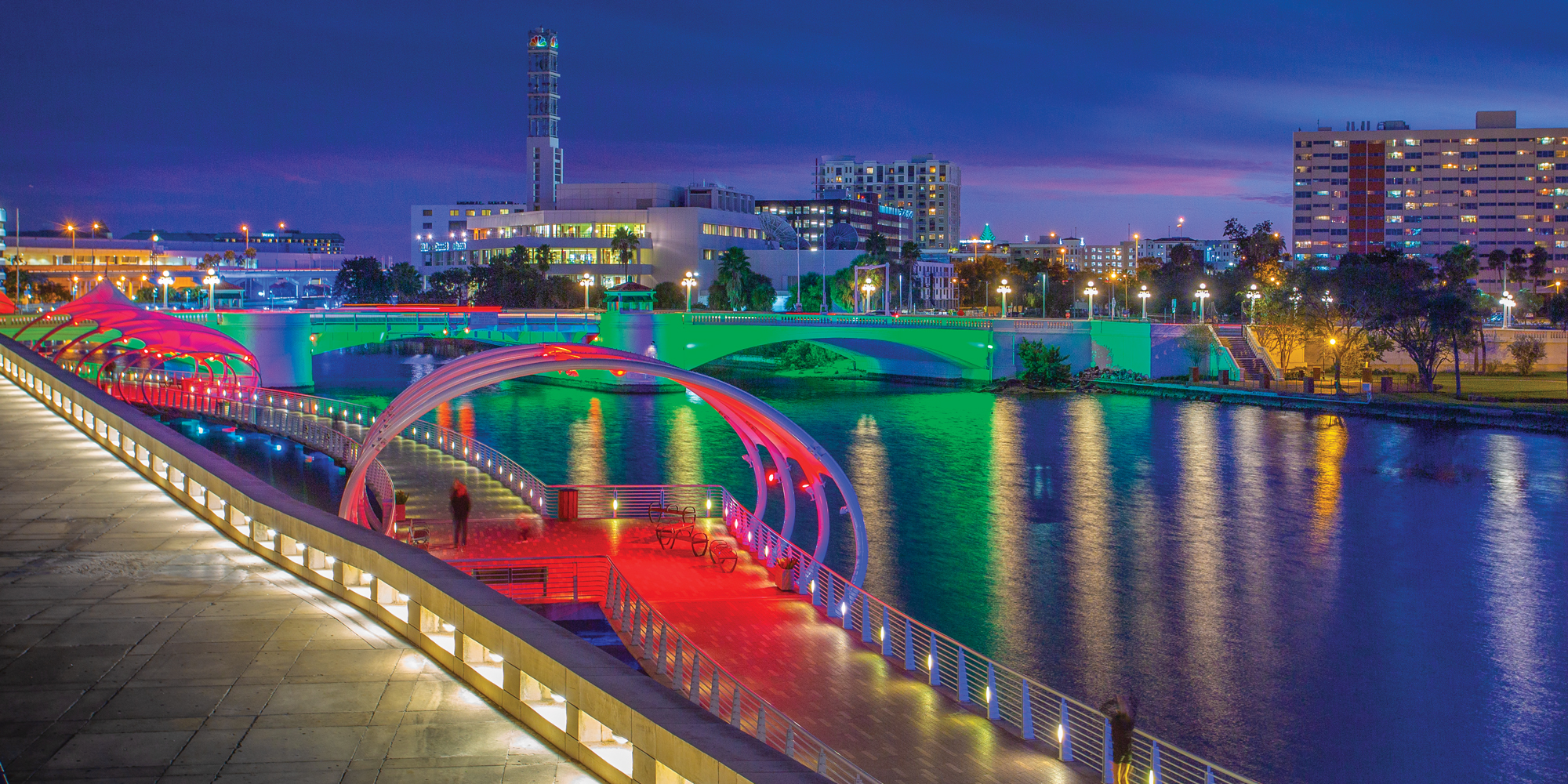
Q: Parks have been a huge part of your administration, from building new ones like Julian B. Lane Riverfront Park to activating existing ones. Why are they so important to you?
A couple of reasons. One, they are the common ground. They are the place where people, regardless of your ethnicity, your income level, the language that you speak, can find common ground. There’s no admission, so it doesn’t matter how much money you have or how little you have. It’s a place where people can gather, where they can make memories, where families can come together, where kids can just be kids. Where you can be active. Where you can celebrate special moments in your family’s history, whether it’s family reunions, weddings. Where it activates some of our natural amenities. I think Riverfront Park is a great example of that. That was not cheap, but that will have generational impact for that neighborhood. It will become a place where people gather. It will lead to private sector investment around the park, which will raise the quality of life in the neighborhoods around the park.
Water Works Park is another example. That stimulated the development of Ulele. It helped to stimulate the development of the Armature Works project. Perry Harvey Park, celebrating the history of our African American community in this city. Long overdue, long undervalued, destroyed by urban renewal in the ‘60s. I saw it as an opportunity to tell the story of our African American community. Spring Hill facility, where we partnered with Cal Ripken, the famous baseball player, to do a world-class baseball and softball facility in Sulphur Springs. Parks make a difference in the quality of life for people. They may not be able to afford to go to a movie or come downtown to a nice restaurant, but the parks are free. Anybody can enjoy our parks, and that’s really, really important.
Q: Transportation has also been a big issue for you. Now the the transportation tax has passed, what do you think the order of priority should be for transportation fixes?
A: I think, moving forward, the first step ought to be building a robust mass transit system, particularly HART buses, that is reflective of a city of our size. If you can’t move people to their jobs, you’re going to be in trouble. If you think about downtown, for example, many of the employees downtown work in service industry jobs. They work at clerical jobs, they work in our hotels, they work at our restaurants. We need them to drive this economy, but if they can’t get here, then we can’t create the kind of growth that we need. Building a bus system that’s robust, that’s reliable, that reflects the population of our community, that moves people from where they live to where they work that’s clean, that’s safe, is really, really important.
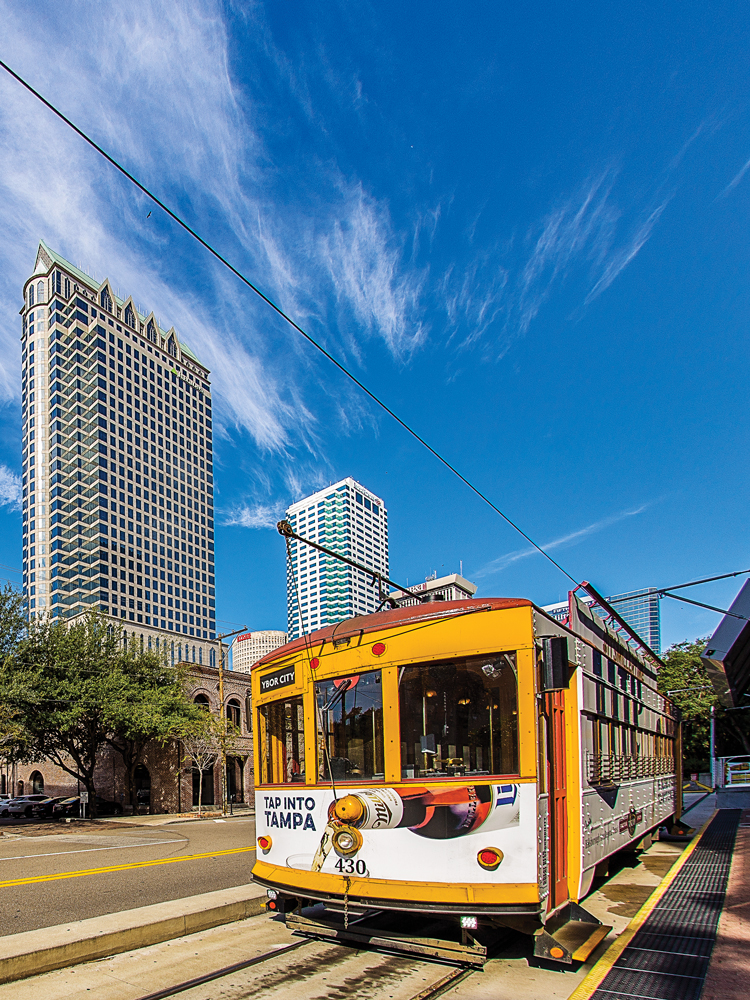
Q: What is the likelihood projects like an expansion of the streetcar and rail within the city limits will materialize in the coming years?
A: Significant, I think. As you build your multimodal system, for parts of the community it will be rail, it will be HOV lanes, eventually autonomous vehicles and designated lanes for autonomous vehicles. It will be a bus system that works and that is scaled appropriately. It will be shared bike lanes and dedicated lanes. I think over the next 10 years, if we do this right, you could see an entirely new set of mobility options for this community. In what is normally an exemplary report card for this community, as you talk to corporations or consultants that are looking to move corporations here, or businesses that are looking to expand, Tampa’s Achilles’ heel — and the Bay area’s Achilles’ heel — is transportation. The fact that we voted to invest in ourselves will reverberate around the country because these corporations will now say, look. They recognized their weaknesses, they’re taking steps to correct them.
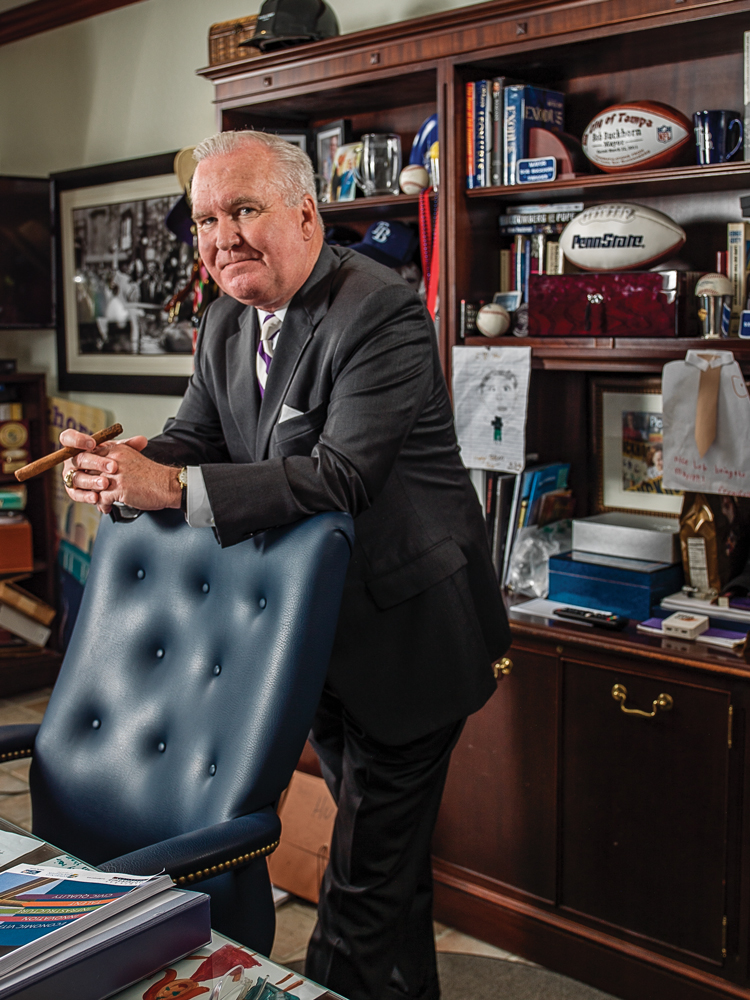
Q: Though there’s been much talk about how the city had changed over recent years, what hasn’t changed about Tampa during your term?
A: I think we’ve never lost that small-town feel even though we’ve become a big city and have all the cultural amenities that any city would want. We have all the professional sports, the great restaurants, the great craft beer. I think what makes us unique is a couple things. One, our history. Two, our diversity. The fact that we celebrate that diversity is a strength, not a weakness. The fact that we speak the languages of the world, that we look like the world, that we honor each other’s contributions. That we would never demonize anybody for the god they worship or who they love. It’s unique, and it’s cool, and it’s special. It sets us apart.
Most importantly, it makes us more competitive. If you’re talking to an Amazon or a J.P. Morgan Chase or a Citigroup, and they’re talking to you about relocating 1,000 employees to your city, they’re going to want to know that their employees that are gay, that are Muslim, that are Jewish, that are trans — they want to know that those employees are going to be welcome, that they’re going to be valued, and that their contributions are going to be treated in the same regard as anybody else’s. We do that well here. We do it as well as anybody in the country.
[It’s a] paella, if you will, of a community, in all of its shades and ethnicities and genders and orientations and backgrounds and languages. The folks that came here from somewhere else, and the folks that have been here for generations. Like a paella, if you laid it out on a table, you’d say, “This will never work.” But once you put it in a dish, it is delicious.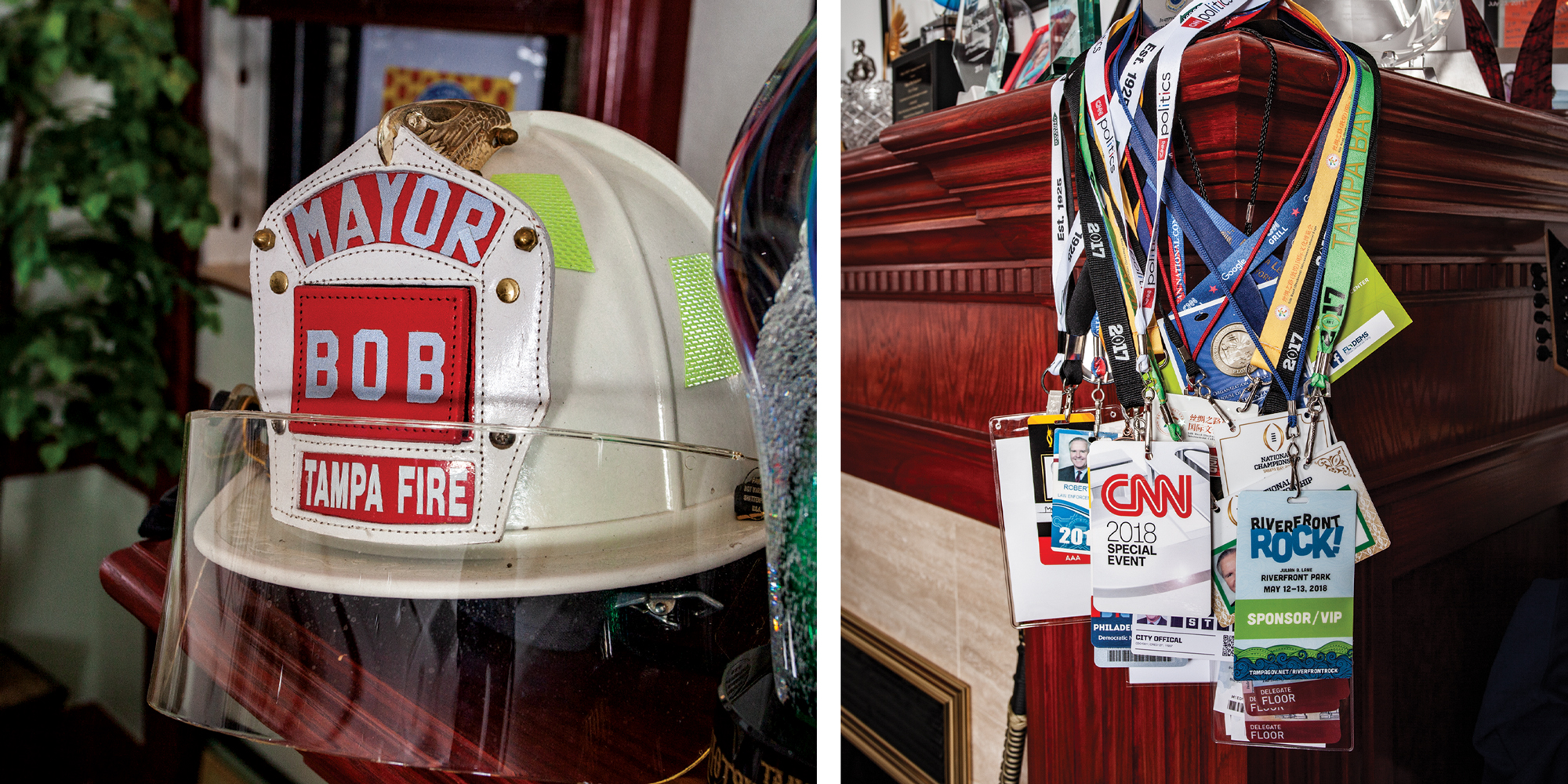
I think for us, even though we have grown exponentially and become a magnet for bright young people from around the country, what we’ve never lost is what it is that made us so special in the first place, and we never want to lose that. Otherwise you become some white-bread Southern city — bland, conservative. That’s not who we are. We are that paella. That’s what I love about this place.
Q: Are we talking to a JP Morgan Chase or a Citibank?I’ll talk to anyone who will come here. They’ve been big partners with us over the years. They have, in both cases, campuses with 5,000 or 6,000 people on them already. They are always looking to expand and consolidate, especially considering the cost of real estate in New York, New Jersey and Connecticut. They love it here. We love having them here. If you ever want to see something cool, go out to the campus at Citigroup. It looks like the United Nations, in every sense, which is really cool. They’re doing business globally, so they have to speak the different languages. Yeah, it’s a different place. There’s a mojo about this city that doesn’t exist in Orlando or Charlotte or Nashville because of our foundation. The fact that we were settled by Spanish, Cuban and Italian immigrants who came here to roll cigars. It’s different. It’s authentic. I don’t know any other way to describe it. It’s not a manufactured city. It’s not driven by the mouse. It’s authentic.
Q: What’s been your proudest accomplishment while in office?
A: It’s not the brick-and-mortar projects, although there are many. Looking at the built environment, this is a different city. I think what I am proudest of is watching this city get up off the mat in the midst of the worst recession since the Great Depression to stick together, to believe in each other, to not worry about who’s a Democrat or who’s a Republican, and emerge out of that darkness to become that shining city on a hill — that beacon of light in America where talent wants to come. We did it without a lot of drama. It was a lot of hard work, but they believe in the narrative, and they believe in the message, and they believe in where we’re going, and they see tangible, physical results. They know it’s not just political rhetoric.
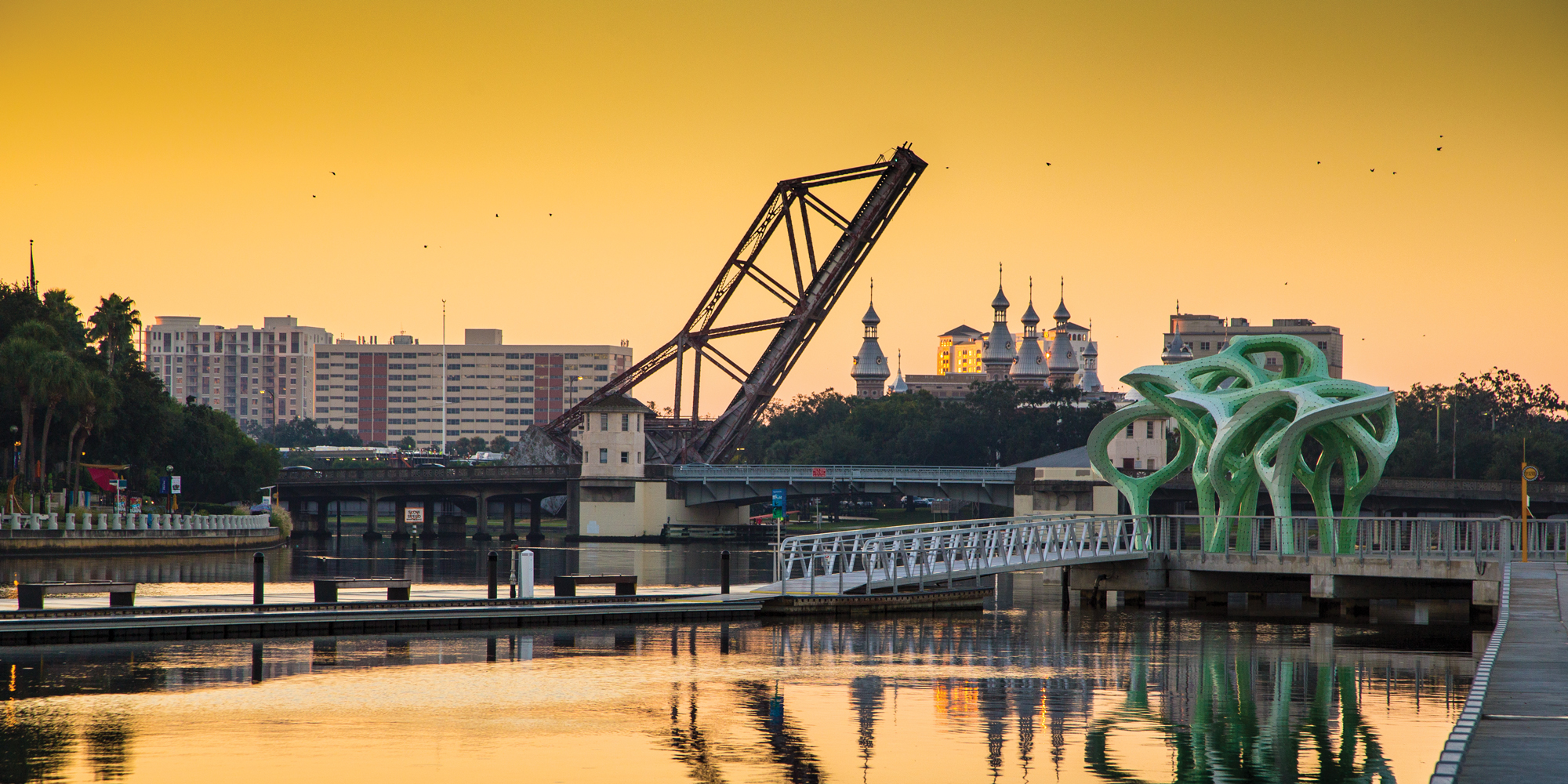
For me, when I leave this office, to know that there is a renewed sense of pride and optimism and a Tampa swagger that’s never existed before, that matches the brick-and-mortar accomplishments, and knowing that people are now empowered to write the next chapter, to have some small role in that from this pulpit that I’ve been given, that’s what I’ll walk away most proud of. It’s not a plaque. It’s not a building. It’s knowing that Tampanians believe in what Tampa’s next chapter is going to be, and they’re empowered and driven to get there. It doesn’t matter who the politicians are — although that will affect it. They see it. They see what I started talking about eight years ago that we could be, and they’ve bought into it. You can feel it. You can see it on the streets and you can see it in the people. You see it in the optimism of the business community. You see it in the conversations that are happening around the country. I would bet there’s not a major corporate relocation that’s being contemplated that Tampa’s not in the conversation as a potential site. That’s pretty cool. To the extent that I set the table for this next chapter, I can walk away happy.
Q: Do you have any regrets? Anything you didn’t get done?
A: Six weeks ago I would have told you transportation. I think that is now well on its way to being solved. When you run a big city, there’s always going to be issues of income inequality. There’s always going to be issues of inequality of opportunities, perhaps. The drugs and the gangs and the violence and the challenges of our inner-city schools, those don’t change. You hope you make progress, but progress is difficult because it’s been generational in its making. There’s never a lack of work here, and you can’t fix it all. You just can’t fix it all. You hope, as a mayor, in the eight years that you’re given that you move the needle in the right direction. You don’t fall back, that you always keep driving, always keep pushing.
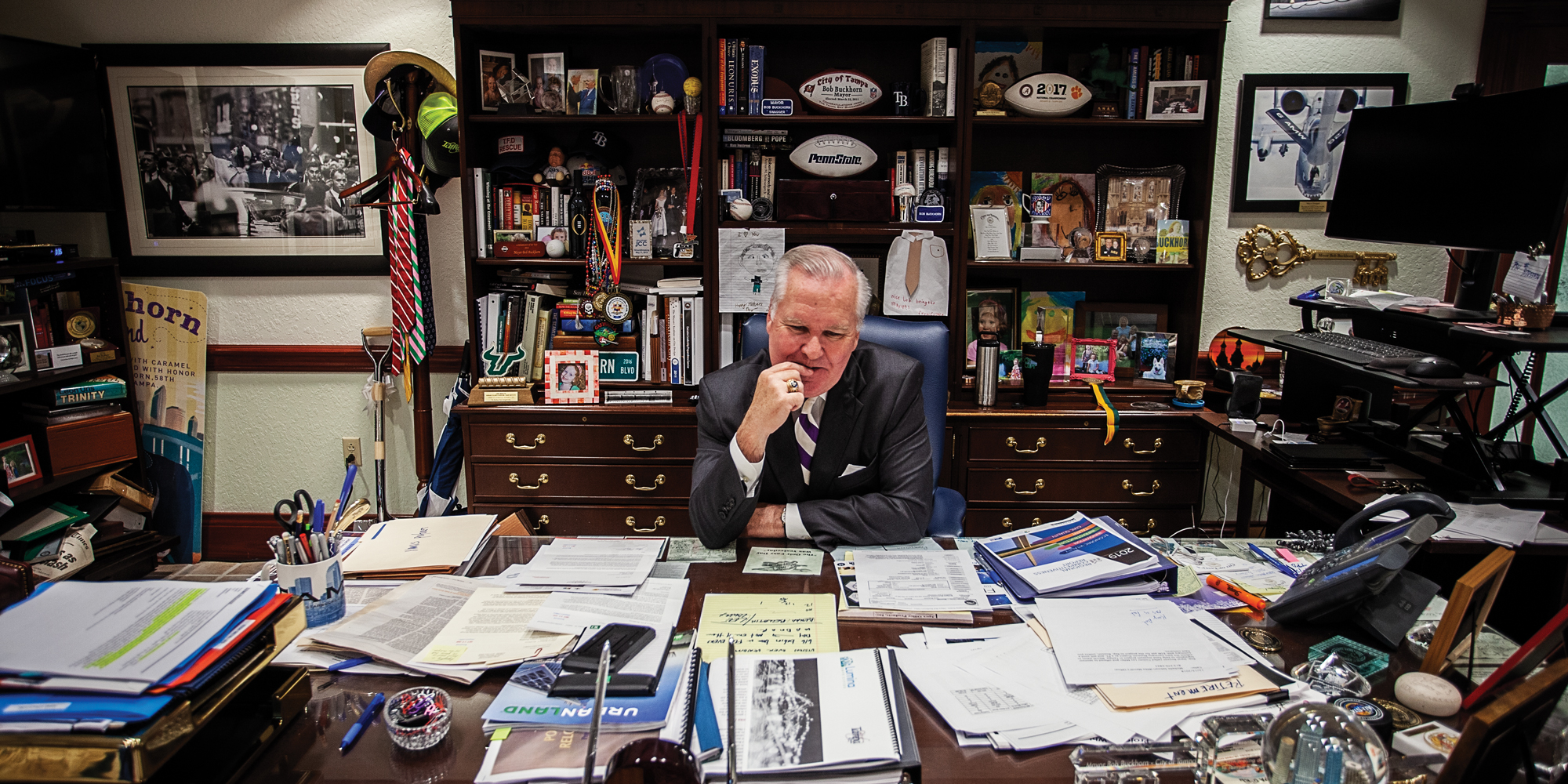
You can see this right here that I keep on the desk that I stole from the Navy SEALs. It says, “The only easy day was yesterday.” You get up every day to compete and drive the mission forward and to drive the narrative. Yeah, there are regrets. There are things that I’d like to get done that I didn’t get a chance to get done. But I’m not going to leave here dissatisfied. Hopefully I’ll have set the tone and the tenor for what could be accomplished by the next mayor, as Pam Iorio did for me, as Dick Greco did for Pam, as Sandy Freedman did for Dick. Each mayor has a role to play. The perfect example of that, in very tangible terms, is that it took six mayors and 40 years to build that Riverwalk. No one mayor is going to solve all the problems, but each of us collectively can make a dent in it.
Q: What piece of wisdom do you have for the city’s next mayor?
A: Be your city’s biggest cheerleader. If you’re not in love with the city already, you shouldn’t be the mayor. This is a special place, and you’ve been given a special gift — the opportunity to be the mayor in a very strong mayoral form of government. You have the opportunity to make or break a city. You have the opportunity to shape it or redirect it. The city will take on your personality. My sense is this city has taken on my personality, with all of its flaws. Go treat it like it’s the amazing gift that it is. Listen before you speak, but have a vision and go execute on the vision, and make sure everyone knows what the vision is. Try to the fullest extent possible that everybody and every neighborhood prospers. If we all prosper and we’re all in this together, then there’s a sense of ownership.
I think the next mayor’s going to be just fine. We’ve gotten through the recession. The hard work has been accomplished, and the misery is over, at least for a short period of time. Financially the city’s on sound footing. It’s a well-run operation staffed by smart, honest people who will give you 120 percent if they know that you’re giving them 120 percent. And always remember that you’re never not the mayor. This is not a job where you get to leave for three months. This is a job where you are the mayor 24 hours a day, seven days a week. I go to sleep every night with a police radio almost in my hand. If it’s not in my hand, it’s right in my bed. You don’t get to go away during hurricane season. You need to be prepared for that moment when government needs to work and your city needs you to step up — whether it’s a hurricane, whether it’s a serial killer, whether it’s running the Republican National Convention. You’ve got to be ready because that’s when people need their mayor to lead. And if you lead, they will follow. They will believe in you, and when it happens, it’s magical. When the mayor and the city are seamless, in terms of attitude and expectations and anticipations and vision, there’s nothing that can stop this place. There’s nothing we can’t do if we set our minds to it as long as those dynamics are in place.
Q: Was there anything that surprised you about being the mayor once you took office?
A: I was lucky because I had been around the office a long time, but there’s no manual for how to be a mayor. There’s no playbook that they give you on day one. Part of it is your preparation. Part of it is, did you come to the office with a plan and execute on that plan? I don’t know that anything has surprised me, per se. There have been a lot of things I’ve been pleasantly surprised with, but I don’t know that there was anything about this job that I didn’t anticipate although I had never done it. It’s not until you sit here and realize it’s your name on the bottom of that paycheck and that you have a responsibility not only for your city, but also for the 4,500 employees that you manage, and doing some really tough work.
Policing in America is a really tough thing these days. Navigating that and community relations and racial relations, it’s all part of what you do every day. For me, I couldn’t wait to get to work every day. I come busting through those doors every morning at 7:30, and I cannot wait to get here to deal with this mess. I just love it. I love it. If you have that attitude, and if it’s not a job for you — don’t tell my wife I would do this job for nothing. If that’s the way you approach this job, then you’re going to be fine. It’s the toughest job in American politics, but it’s the best job. You actually get to do and not just be. You get to build a city. You don’t have to worry about who’s a Democrat and who’s a Republican and all that stupid stuff they fight about. That’s not what I do. That’s not what mayors do. We build cities, and that’s pretty cool.
Q: What have you learned about Tampa during your time as mayor?
A: We’re a tough crew. Tough in the sense that we’re resilient. We made it through that recession. It kicked the crap out of us, but we got back up. We wiped the blood off our face, and we got back in the game. That resilience matters because in the tough times, that’s often all you have left. We’re a caring people. We’re a decent people. We’re a diverse people, and we honor that. We have our outliers and our haters, but I think largely we collectively have set the tone that, not on our watch. Not in our city. We’re not going to tolerate you painting swastikas on synagogues. We’re not going to tolerate you defacing a mosque. We’re not going to tolerate you persecuting or bullying gay people. We’re just not doing it, and we’re going to call you out when you do.
It’s an amazing mix of longtime residents but an influx of new talent and new energy and new ideas, as opposed to everyone going into their little parochial silos and the society crowd not letting anyone new in. Think about this: I arrived here in 1982. I didn’t know anybody. I didn’t come from anything. I had $300 and a 1966 Dodge Dart with no air conditioning. The fact that I am now sitting here, having been the mayor for eight years, not having grown up here, and having been accepted, not coming from anything, that tells you how welcoming this city is and that they recognize all that matters is one, you’re willing to work hard. You’re willing to believe in Tampa. Have some degree of talent, but understand that you will come in and you will fit if you’re doing it for the right reasons. Even the society crowd recognizes that. They’ve been, as a rule, very welcoming to outsiders to come in and to contribute and to get involved. You don’t have to pay your dues. You don’t have to wait 20 years to move up the leadership chain. If you look at our chamber of commerce and our EDC and all the major institutions, I’ll bet you the bulk of them are people who haven’t lived here more than 10 years. It’s new blood, which is great for a city.
Q: Do you think Tampa truly has the ability to become a next-level city over the next decade or so?
A: Here’s my prediction. If we continue on this path and we continue to drive this narrative and execute on this plan, south of Atlanta, Tampa will be the economic engine that drives the southeast United States. I am absolutely convinced of it. We’ve got a lot of work ahead of us, but I think the bones are there. I think the talent is there. I think that’s only going to get better if we keep doing this right. If we don’t do drama and we don’t let the petty differences divide us, I think we’ve got the capacity to be everything we aspire to be and then some.
We’ve already, in the last eight years, been number one or number two in terms of new jobs created in the state of Florida. We are a magnet for millennials. It’s growing exponentially. They’re coming from all over the country and all over the globe. If we continue on that pace, my kids are going to have a great place to come home to after college. That wasn’t the case 10 years ago. We were a donor city to Charlotte, North Carolina. Now they’re coming here.
Q: You’re bound to be asked this question hundreds more times before leaving office, but what comes next for you?
A: The answer is I don’t know. I’m not really thinking about it because I still have a white board full of stuff I need to finish. I need a vacation because I haven’t had a real vacation in a decade. This is my oldest daughter’s last summer before she starts college, so I want to spend a lot of time with her and travel. I’m never not going to be engaged, but I want to step off the stage so the next mayor can get their sea legs.
So, will I ever run again? Probably not. I don’t see that any time in the near future. But I’m not ever going to say never. I had a chance to run for governor this last cycle. I didn’t, and I knew when I made that decision I was potentially closing the window on my public life. I’m OK with that. I got the only job I ever wanted. I got the job I trained for, that I aspired to. I ran for it in 2003 and lost and came back eight years later and won. I can walk away a happy guy if I’m never on the ballot again. So we’ll see. We’ll see. It’s been a good run. I know my 13-year-old daughter is not excited about me coming home. She said to me, “Daddy, you really should have run for governor because you have no hobbies, and I don’t want you coming home and hanging around with me.” From the mouth of the 13-year-old, I gotta get some hobbies.


